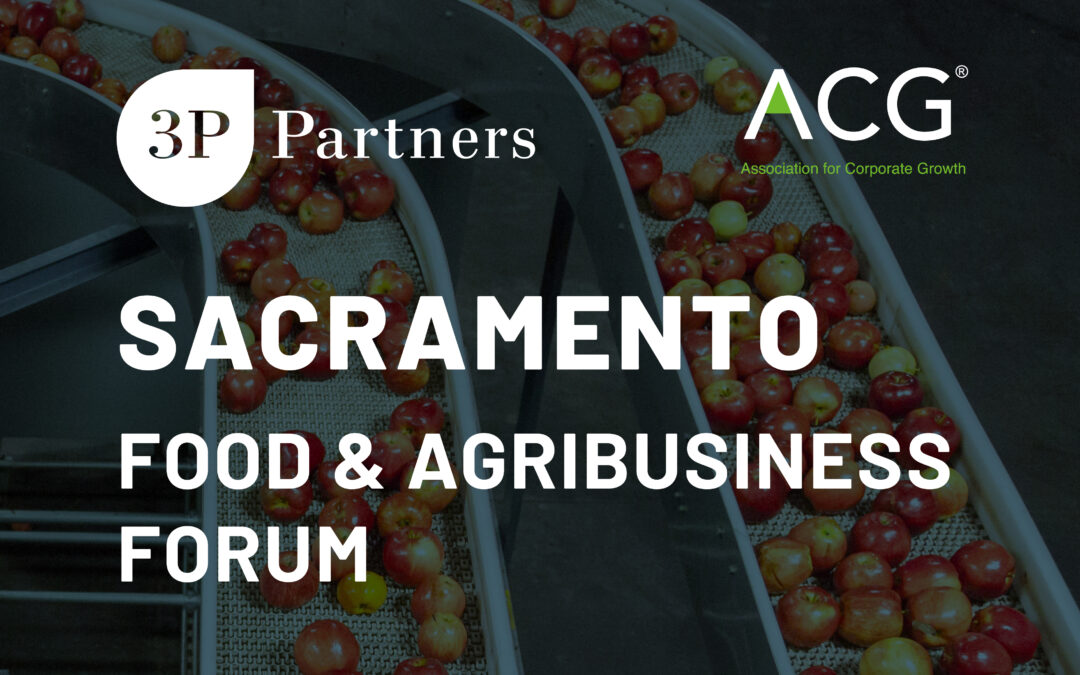On March 21, 2024, more than 150 industry leaders gathered at the 3P Partners and ACG Food & Agribusiness Forum in Sacramento to discuss pressing issues and emerging trends shaping the food and agriculture sectors. The event had a lineup of distinguished speakers and panelists offering insights into the challenges and opportunities facing businesses in the Food and Agribusiness industries.
Introduction to Proposition 65
The forum commenced with Ally Lizano, an Attorney specializing in Environmental Law at Downey Brand, shedding light on Proposition 65. Lizano elaborated on the implications of this legislation for the food and agribusiness industry, emphasizing the importance of proactive measures to address these regulatory challenges. Lizano shared, “Proposition 65 is a California law that reaches beyond California and affects those in the supply chain doing business in California. It requires specific warning labels to be used on products in various circumstances. Current trends in food include fruits and vegetables, seafood products, spices and sauces, pastas, and various other pre-packaged products. One of the most commonly noticed chemicals for food is lead. OEHHA has recently proposed regulations to change the short-form warning labels, which has received criticism from the regulated community. Those in the industry should be aware of the most recent trends in Prop. 65 notices in order to maintain robust compliance programs.”
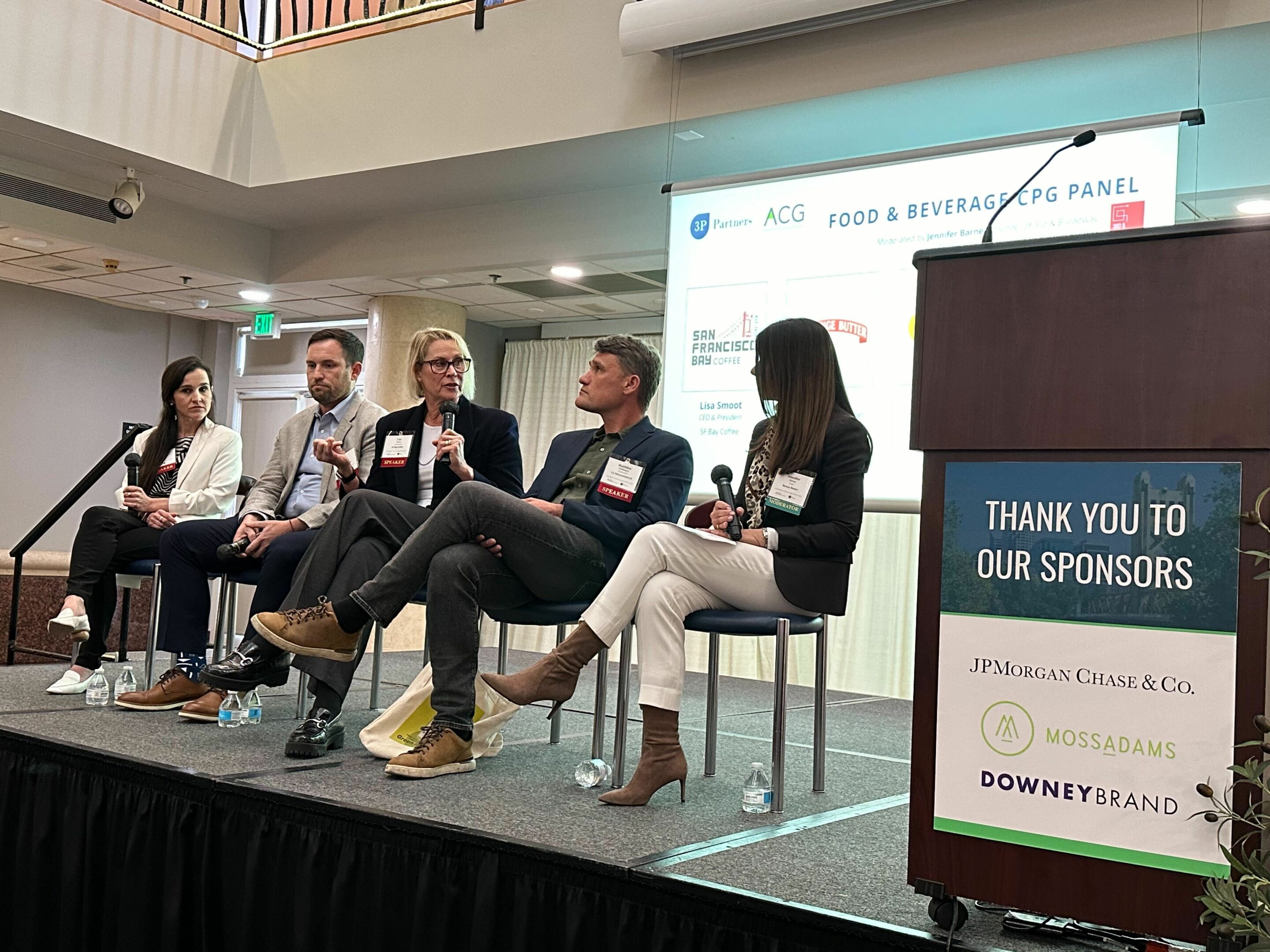
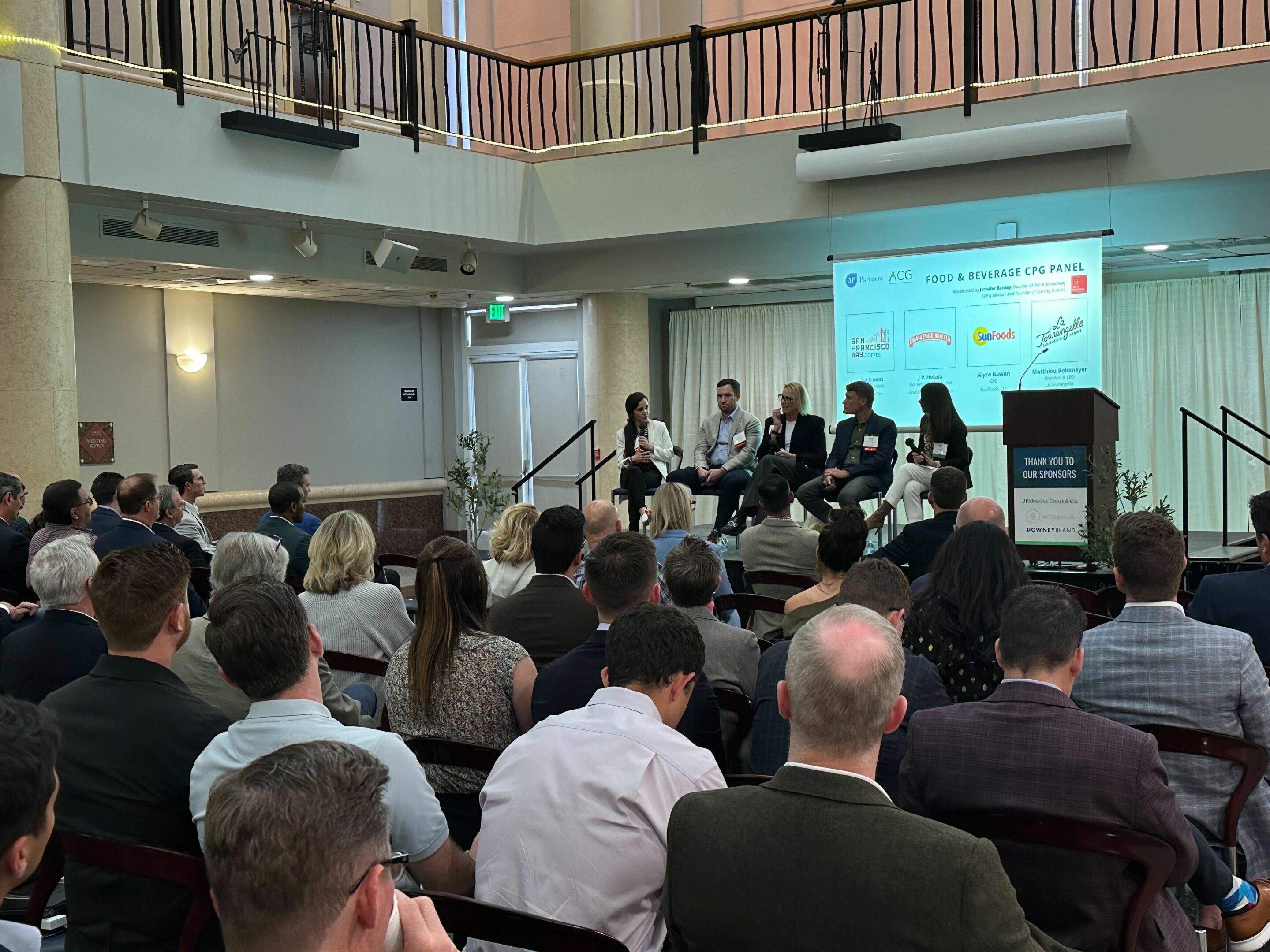
CPG Panel Discussion
Led by moderator Jennifer Barney, founder of Barney Butter, the CPG panel comprised Lisa Smoot, CEO & President at SF Bay Coffee, Matthieu Kohlmeyer, Founder & CEO at La Tourangelle, Alyce Gowan, CFO at SunFoods, and JP Hvizda, SVP Retail and Private Label at Challenge Dairy Products.
The panelists shared their perspectives on how the higher cost of borrowing has impacted their ability to fund new projects and expansions, as well as the strategies they have employed to mitigate supply chain risks and rising commodity prices.
Rising input costs have pushed companies to reevaluate all aspects of their business. For some of the companies represented by our panelists, the price of their primary commodity increased by more than 67% in the last two years.
While some companies in the broader market have navigated rising input costs through “shrinkflation” (reducing package sizes while maintaining prices) in recent years, this approach may no longer be viable as consumers become more price-sensitive.
Businesses are evaluating their relationships with retailers, potentially walking away from those unwilling to accept price increases and determining whether to focus more on branded products with better margins or to turn their attention toward private label in response to consumer price sensitivity. JP Hvizda summarized Challenge’s current approach: “We’re leaning into the private label part of the business because, with inflation, there is going to be more consumer trade down.” A notable exception to the trend of consumer trade down is the super-premium segment. Hvizda notes that Challenge’s premium brand, Danish Creamery, is “not affected as much from a consumer sentiment perspective,” and has been the focus of a relaunch to leverage this segment.
Companies are also exploring innovative ways to adapt their products and processes, such as adjusting product blends to manage rising input costs or diversifying supplier base to mitigate supply chain risks. Matthieu Kohlmeyer commented that La Tourangelle is tracking how climate change is impacting the supply chain. He explained that “climate change is affecting crops in different countries, so you want to diversify your supplies to different places.” In addition to diversification, La Tourangelle is investing in organic and regenerative farming to ensure the availability and quality of inputs.
To contend with similar supply chain and commodity cost challenges, Lisa Smoot shared that SF Bay Coffee has adjusted their approach to blending their coffee to a taste profile as opposed to a fixed blend. Smoot elaborated, “Our French Roast used to be a certain percentage Mexican coffee, a certain percentage Costa Rican, and so on. But when, for example, Mexican coffee tripled in cost, our margins were severely compressed. Now, we’re blending to a taste profile with sixteen different coffees instead of using fixed ratios.”
Companies are also investing in product innovation to meet the consumer demand for foods that fit into healthy lifestyles or specific dietary needs. Alyce Gowan shared that SunFoods has been able to leverage the global innovation pipeline as part of a larger international group to develop new low glycemic index products that address health trends related to diabetes and weight management.
When asked to pinpoint the biggest challenges their companies currently faced, panelists identified rising commodity costs, obstacles to retail market expansion, employee turnover, capex constraints, and logistical issues related to global tensions as the most pressing.
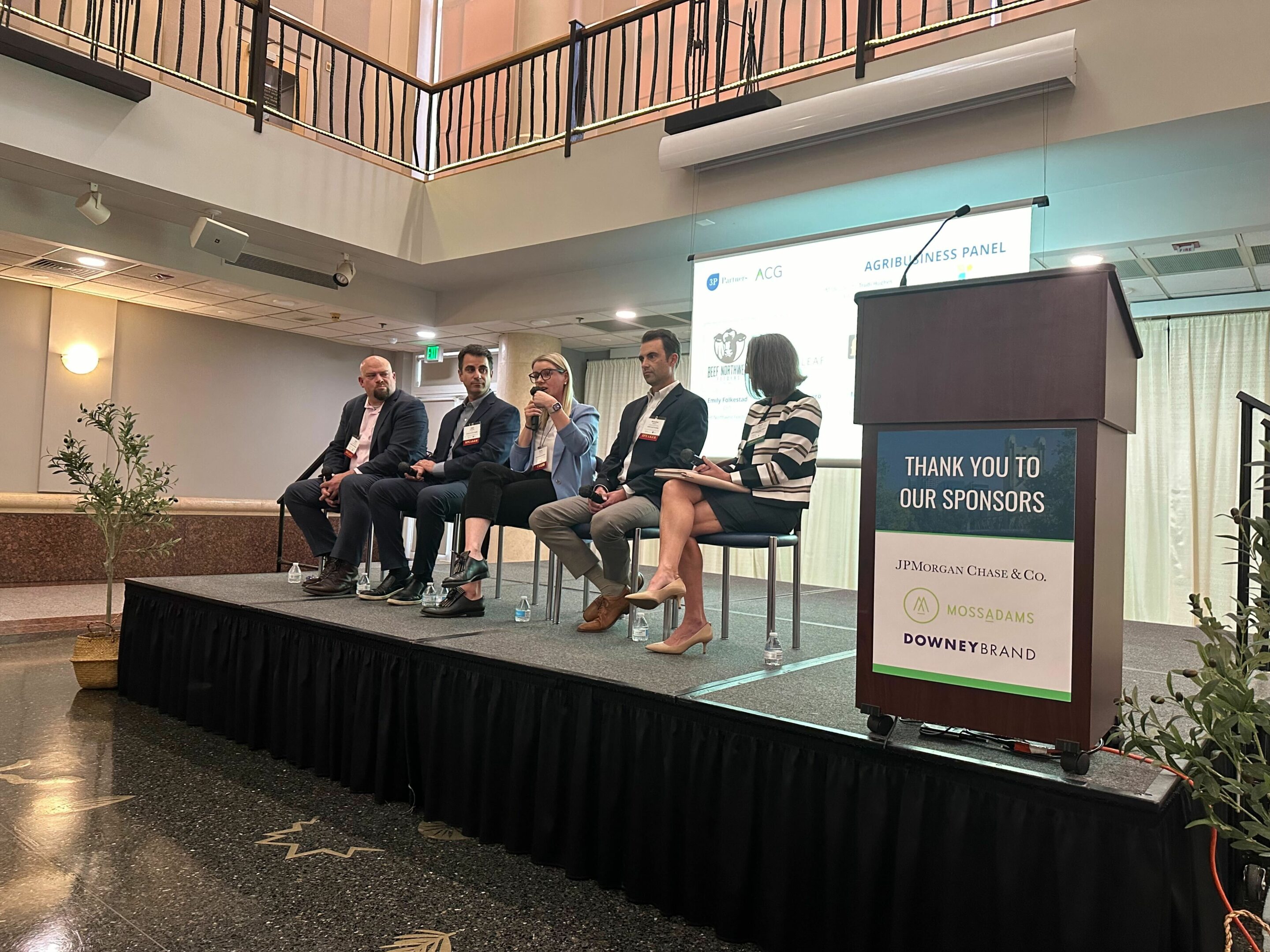
Agribusiness Panel Discussion
Trudi Hughes, CEO at the California League of Food Producers, facilitated an engaging dialogue among agribusiness leaders Emily Folkestad, CFO at Beef Northwest Feeders, Brandon Rebiero, Co-Founder and Head of Farming at Gold Leaf Farming, Matt Shekoyan, COO at Fruit Growers Supply, and Erick Watkins, Director of Engineering at Pacific Coast Producers.
The panelists discussed the challenges and opportunities presented by evolving energy and transportation legislation as well as the imperative for businesses to adapt to technological advancements while ensuring workforce sustainability.
The Agribusiness Panel agreed that regulatory timelines for transitioning to zero-emission were too aggressive without the necessary infrastructure and technology available to meet the goals. The panelists stressed the need for realistic, phased approaches to regulations and more available grant funding to support the transition to more sustainable energy sources. They also discussed the challenges with the economics and incentives around renewable energy solutions like solar and wind power.
Labor shortages in agricultural production and food processing emerged as a common challenge for agribusinesses. Emily Folkestad emphasized that this was particularly the case for specialized roles such as cowboys and feed yard managers. To combat this shortage, Folkestad shared that Beef Northwest Feeders are investing in apprenticeship programs and leadership development to build a pipeline of future talent and upskill their existing workforce.
The panelists also agreed that leveraging data analytics and AI/machine learning is a key opportunity to drive more informed decision-making. Folkestad noted the applications of these technologies in areas like animal health monitoring and treatment protocols while Matt Shekoyan discussed optimizing logistics and supply chain operations through automation as another area of innovation. Shekoyan also commented on Fruit Growers Supply’s move toward a more data-driven culture rather than relying on their legacy as a 130-year-old company: “We’re leaning into business intelligence and looking at how to turn data into insights into action for better effect for our organization.”
The Agribusiness Panel highlighted that automation and robotics are being adopted to improve efficiency and productivity rather than replacing human workers. Brandon Rebiero shared that the adoption of new technology such as autonomous driving tractors and automated harvesting is projected to enable Gold Leaf’s farm managers to oversee double their current acreage. However, introducing these advanced technologies is not without its challenges. Erick Watkins noted a gap in the talent pipeline from colleges and universities to the workforce, highlighting the need for a new tier of workers with a blend of mechanical, electrical, and engineering skills to support the integration of smart technologies in companies’ operations. With innovations comes the need for a highly trained workforce, and the Agribusiness Panel underscored the importance of upskilling the ag labor force to adopt these new technologies.
Key Takeaways
Based on the discussions provided in the CPG Panel Discussion and the Agribusiness Panel Discussion, the key takeaway topics are:
1. Strategies for Mitigating Rising Costs and Supply Chain Risks: Panelists shared various strategies employed by their companies to mitigate rising costs and supply chain risks. These strategies include adjusting product blends, diversifying supplier bases, investing in innovation, and exploring alternative approaches to pricing and product offerings.
2. Adapting to Regulatory Changes: Participants emphasized the need for a proactive response to evolving regulations, while also advocating for realistic regulatory timelines, infrastructure support, and grant funding to facilitate transitions.
3. Investment in Innovation and Technology: Both panels highlighted the importance of investing in innovation and technology to drive efficiency, productivity, and sustainability in their industries. This includes leveraging data analytics, AI/machine learning, automation, and robotics to optimize operations and make more informed decisions.
4. Workforce Development and Talent Pipeline: Addressing labor shortages and upskilling the workforce emerged as critical challenges and opportunities for both industries. Panelists discussed various initiatives such as apprenticeship programs, leadership development, and the need for a new tier of workers with specialized skills to support the integration of advanced technologies. They emphasized the importance of workforce sustainability and adaptation to technological advancements.
Conclusion
The 3P Partners and ACG Food & Agribusiness Forum provided a platform for industry leaders to engage in meaningful dialogue, exchange insights, and chart the path forward in a rapidly evolving landscape.
To learn more and be the first to hear about our next Food & Agribusiness Forum, reach out to Rachel Quinn at rquinn@3ppartners.com
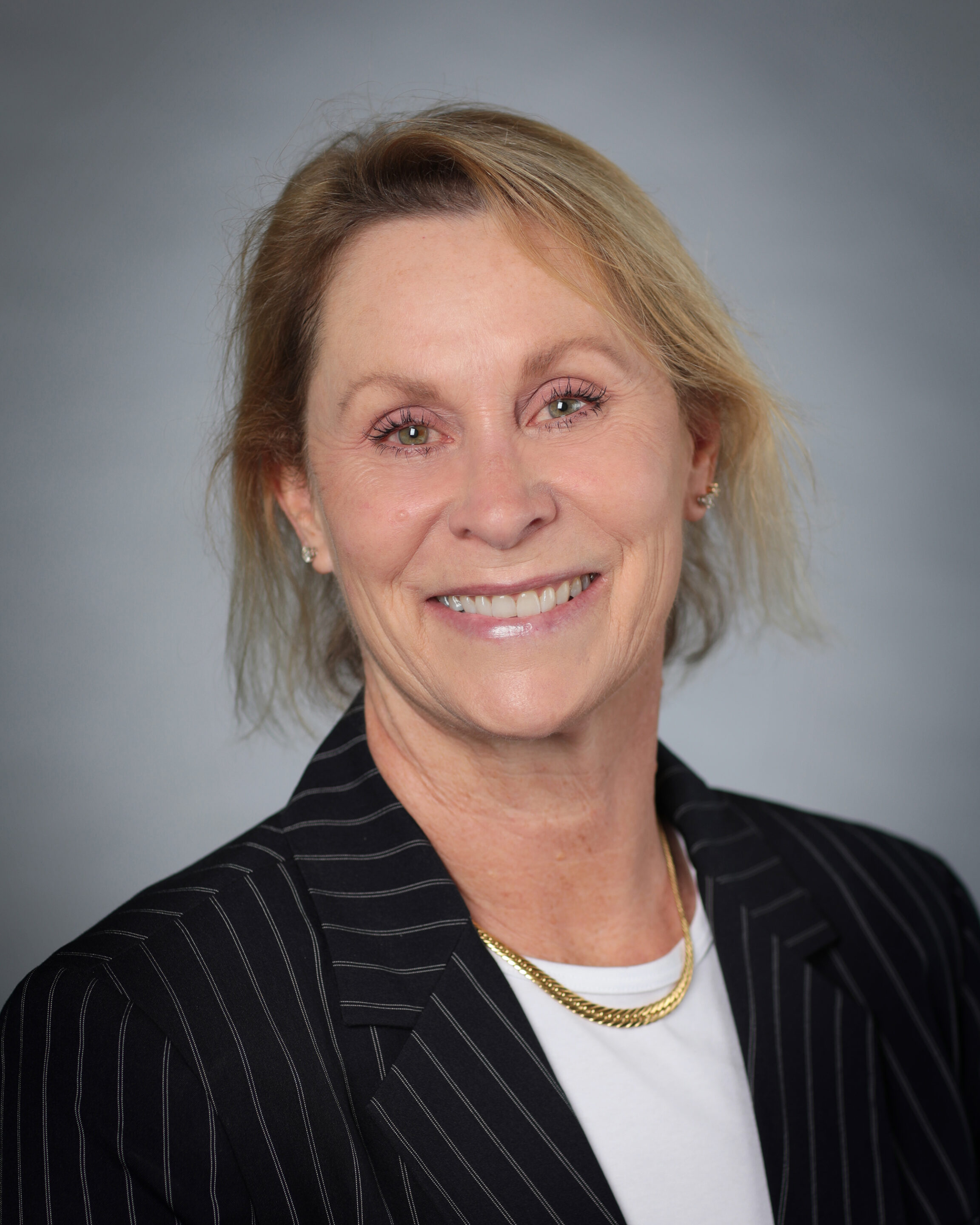
Lisa Smoot | CEO & President at SF Bay Coffee
Lisa is a second-generation CEO running a large vertically integrated coffee roasting business with operations in the U.S., Central America, and the UK. Lisa oversees all aspects of SF Bay Coffee’s business from strategic planning and growth to coffee farming worldwide, and product sales. Lisa has worked for the family business for 40 years. She is a graduate of the University of California, Berkeley. Lisa lives in the Bay Area with her husband of 29 years and her four grown children. She loves being outdoors, cooking, and spending time with family.
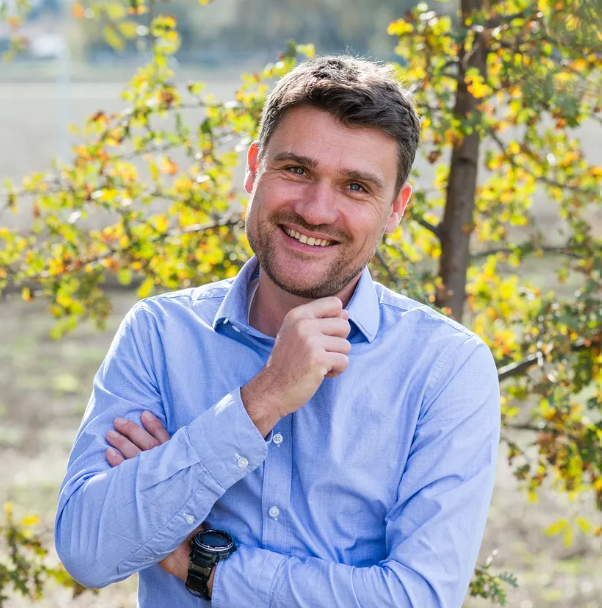
Matthieu Kohlmeyer | Founder & CEO at La Tourangelle
Matthieu Kohlmeyer, CEO and Founder of La Tourangelle, has led the company since the 1990s when his family acquired a French mill. La Tourangelle has since climbed to the forefront of the gourmet food industry, where it has earned acclaim for its meticulously crafted artisan oils. Relocating to Northern California in 2002, Matthieu revitalized the brand, growing it from a single walnut oil to a global enterprise selling into 30 countries. Matthieu’s strategic insights and dedication to sustainable practices have not only propelled La Tourangelle’s growth but also solidified its reputation as a leader in the field.
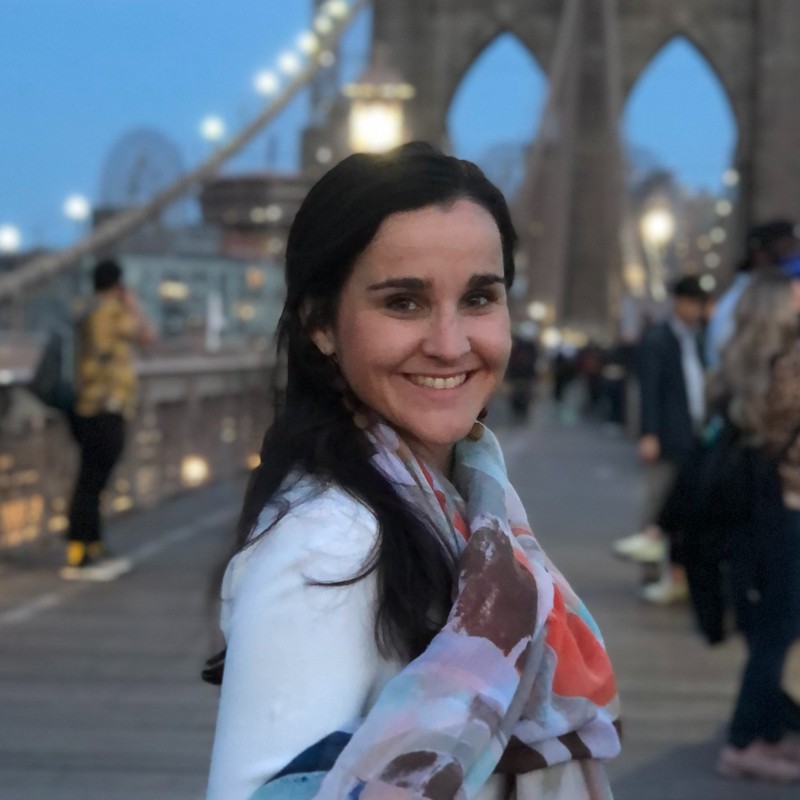
Alyce Gowan | CFO at SunFoods LLC
Alyce Gowan has over a decade of financial leadership experience across diverse sectors including Fast-Moving Consumer Goods (FMCG), manufacturing, and professional services. Alyce has served as the Chief Financial Officer at SunFoods, LLC, in Sacramento, California for the last six years. In this role, she oversees commercial finance, accounting, tax, audit, and risk management. SunFoods, LLC is a subsidiary of SunRice, a publicly listed global rice business headquartered in Australia, where Alyce spent three years before relocating to the US. Before this, Alyce gained experience at RedKite and later Lion Nathan, a global beverage company. Alyce started her career in public accounting at PwC where she served clients in private equity, technology, aviation, mining, non-profit, property, health, and aged care. She holds a Bachelor of Commerce (B.Com.) degree from the University of New South Wales and is a Chartered Accountant.
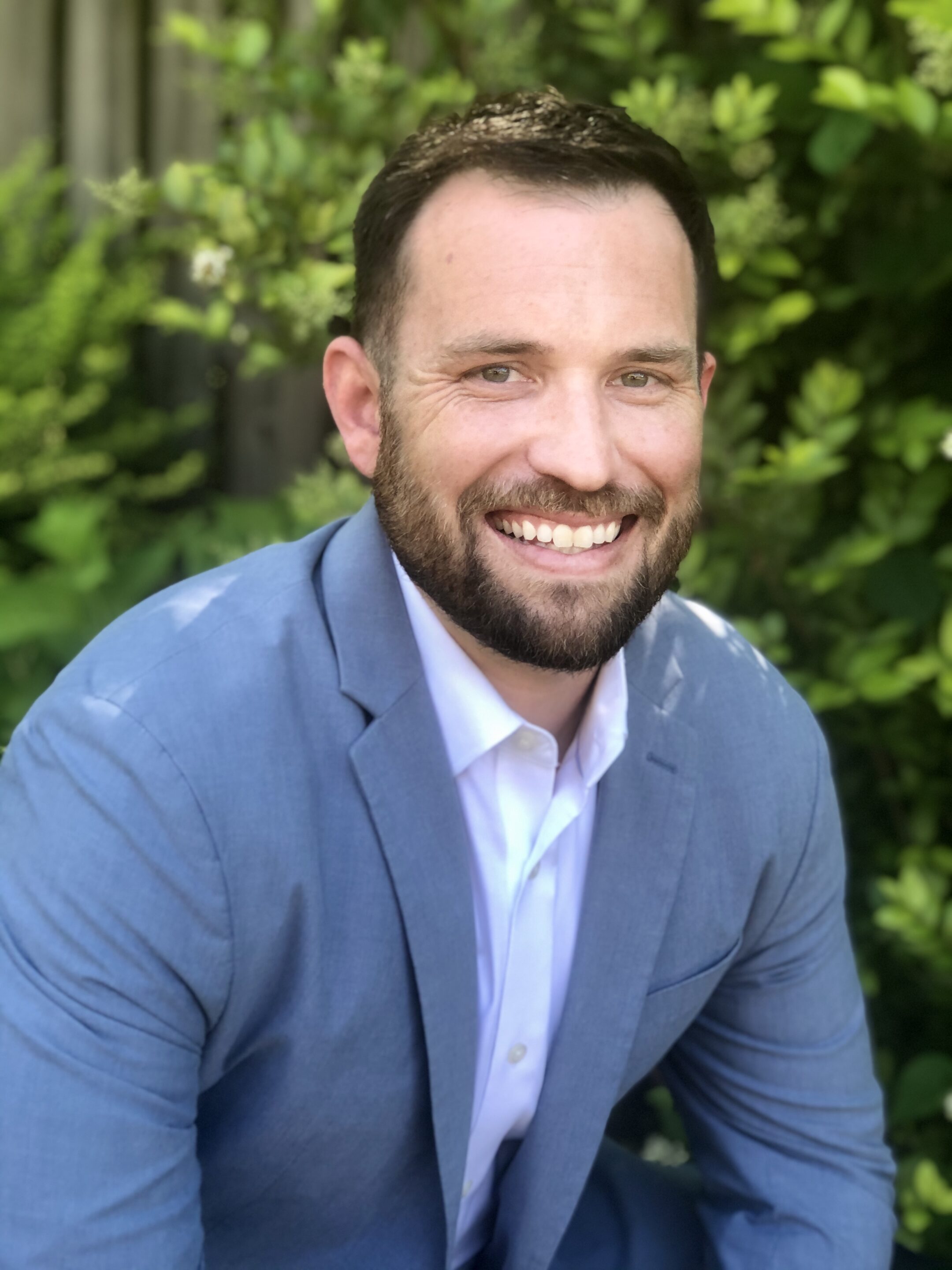
J.P. Hvizda | SVP Retail & Private Brands at Challenge Dairy Products
John P. Hvizda is Senior Vice President of Retail and Private Brands for Challenge Dairy Products, Inc. — a 111-year-old heritage brand based in California that is the leading butter brand in the west and a top competitor nationally. Challenge is a wholly owned subsidiary of California Dairies, Inc., and is responsible for the sales, marketing and distribution of retail-facing products: Challenge Butter, Danish Creamery and private label butter, at key retailers. John holds a Bachelor of Business in Food Marketing Degree from Saint Joseph’s University in Philadelphia, PA, and is based in Dublin, California.
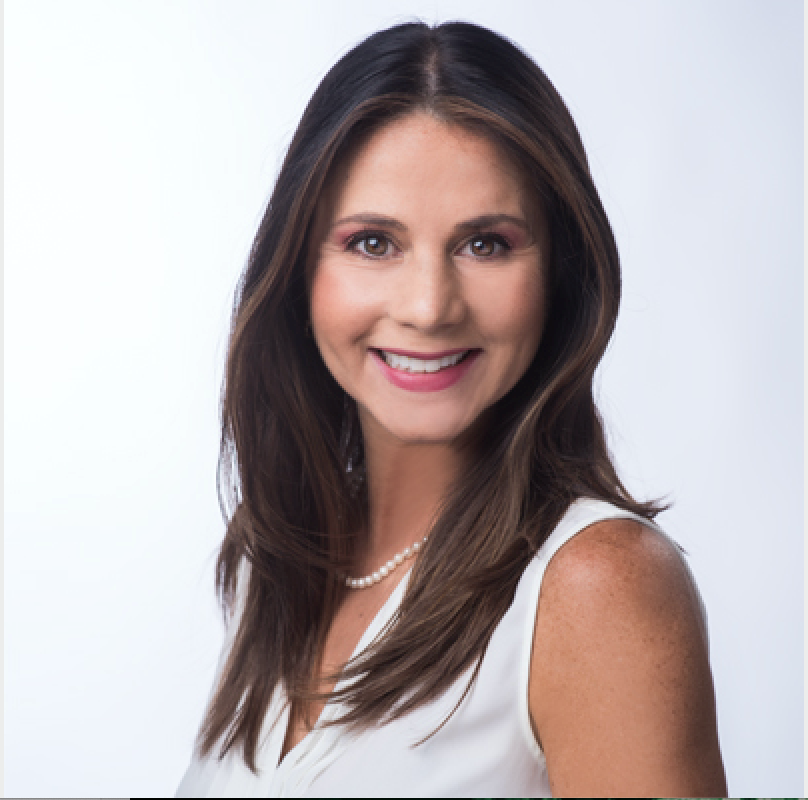
Jennifer Barney | Founder of Barney Butter
Jennifer Barney advises founders and leadership teams in agribusiness on new value-added markets including entering CPG. She is curious about consumer-driven demand that shapes product innovation, food production, and ultimately farming. Jennifer founded the almond butter brand Barney Butter and led innovation for the $800 million frozen food co, Ruiz Foods. Jennifer is an advisor and consultant to food and agriculture businesses. She is a contributing writer to New Hope Media, a mentor to food startups at consumer product accelerator, SKU, and publishes a weekly newsletter for startups and ag leaders. Jennifer graduated from UC San Diego and is a member of Naturally Bay Area.
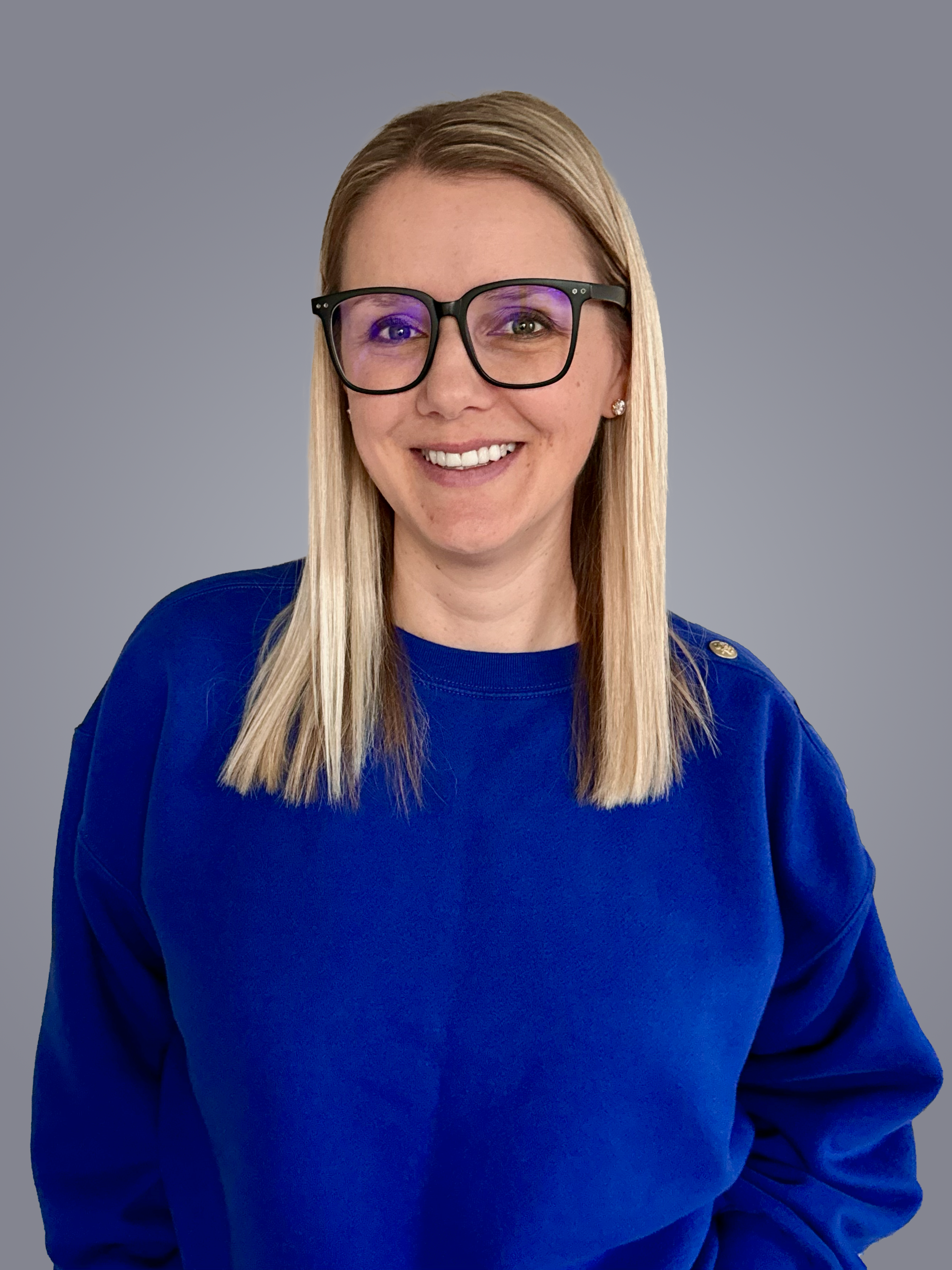
Emily Folkestad | CFO at Beef Northwest Feeders
Emily Folkestad is the Chief Financial Officer for Beef Northwest Feeders, a progressive beef production operation with over 430 employees across twelve locations in Oregon and Washington. Emily and her team support all finance, accounting, price risk management, and technology functions for the company. Beef Northwest and its affiliate entities focus on cattle feeding, ranching, transportation, meat processing, and land management operations. Emily received her Bachelor of Science and Master of Business Administration degrees from Eastern Oregon University. Emily resides in La Grande, Oregon with her husband, Bryan, and four-year-old son, Oliver.
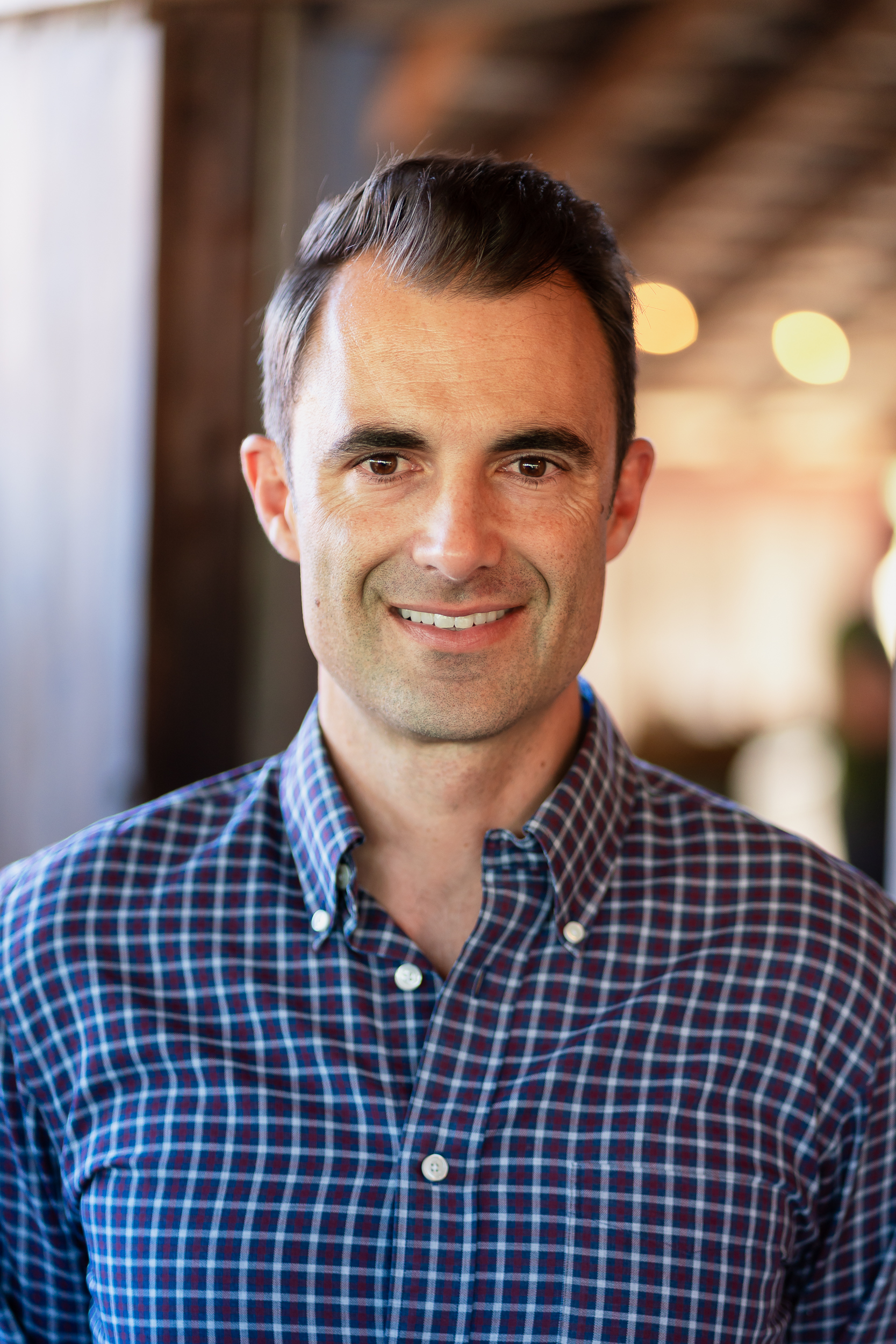
Brandon Rebiero | Co-Founder & Head of Farming at Gold Leaf Farming
Brandon is a Co-Founder and the Head of Farming of Gold Leaf Farming, where he leads the firm’s farming efforts. Brandon is a tree nut grower, manager, and consultant and has overseen approximately 20,000 acres of crops throughout California in his career. Before founding GLF, Brandon worked closely with private investment firm Trinitas Partners which built a portfolio of over 10,000 acres of almonds throughout the state. Brandon played a significant role with Trinitas including managing and advising on due diligence, plant science, orchard development, orchard management, investor relations, and strategic planning. In his spare time, Brandon is a partner in Rebiero Brothers, LLC, a small almond grower in Stanislaus County, CA. As a small grower, he is still intimately involved in every aspect of the business from driving tractors to farm strategy. Brandon attended Cal Poly, San Luis Obispo where he obtained a B.S. in Pomology and a Minor in Plant Protection Science. He completed the Blue Diamond Leadership Program as well as the Almond Board of California Leadership Program. Brandon formerly served on the Production Research Committee for the Almond Board of California.
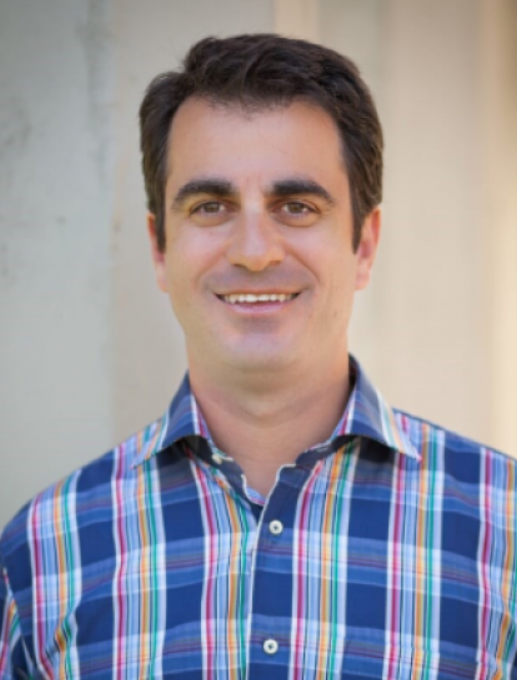
Matt Shekoyan | COO at Fruit Growers Supply (FGS), an affiliate of Sunkist Growers
Matt Shekoyan, Chief Operating Officer for Fruit Growers Supply Company (FGS), an affiliate of Sunkist Growers and a leading agricultural supply company. Matt has over 25 years of experience as a leader and executive in the US, Latin America, and Europe, with a focus on the food and agriculture sector. His expertise includes P&L Leadership in high-growth companies, M&A strategy, post-merger integration, launching new consumer products, and building and leading high-performance teams. Prior to FGS/Sunkist, Shekoyan held several executive leadership positions with The Wonderful Company, including serving as the CFO for Wonderful Citrus. Earlier in Shekoyan’s career, he served as the Director of Agricultural Trade for the California Department of Food & Agriculture in Mexico City, generating millions of dollars of new export sales for California’s food and agriculture industry. He serves on the Advisory Board at GroGuru, a leading provider of strategic water management solutions for farmers. He also served on the Advisory Board for the Los Angeles chapter of NFTE – National Foundation for Teaching Entrepreneurship, an organization that helps high-school youth ignite an entrepreneurial mindset. He holds an MBA from Stanford and a BA in Political Economy from UC Berkeley.
Erick Watkins | Director of Engineering at Pacific Coast Producers
Erick has spent nearly 25 years in the engineering and environmental field. During this period, he worked with the military, government, and private industry. Erick is an alum of the University of California, Davis and is currently the Director of Engineering for Pacific Coast Producers, an Agricultural Cooperative owned by over 160 family farms located in Central and Northern California.
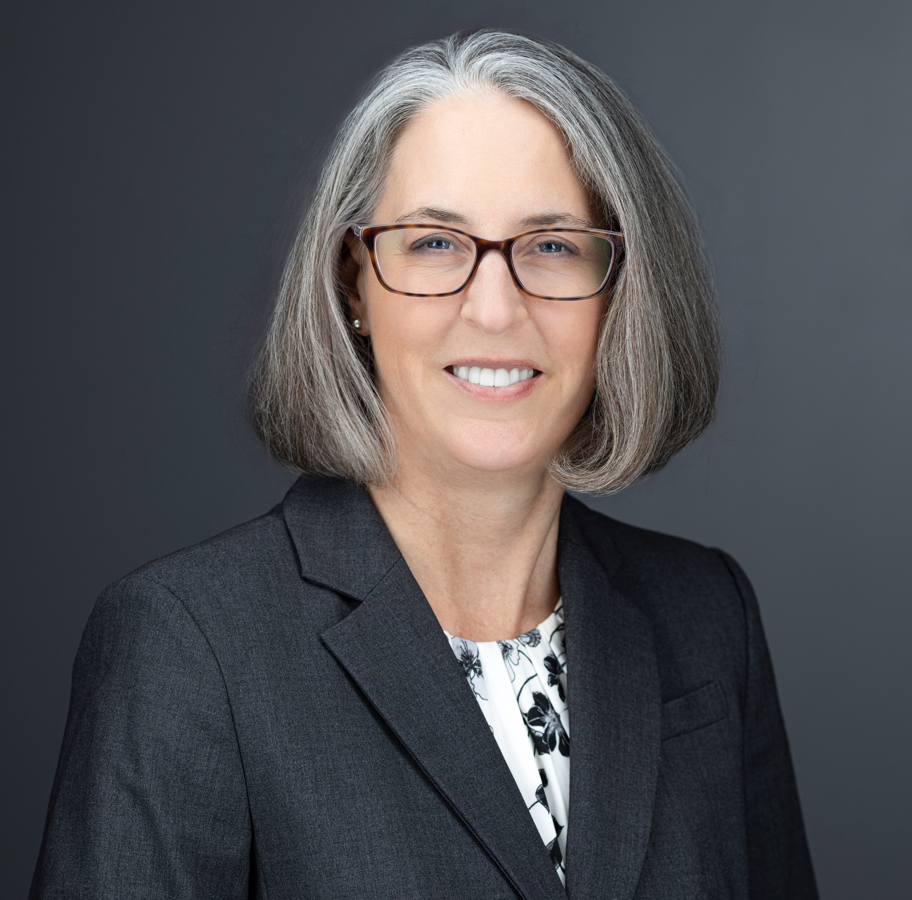
Trudi Hughes | President & CEO at California League of Food Producers
Trudi Hughes is the President & CEO of the California League of Food Processors (CLFP). Before becoming the first woman to serve as CLFP’s president, Trudi served the organization as Government Affairs Director and was CLFP’s point person in the legislature. Trudi has almost 30 years of government affairs experience. Prior to CLFP, she was a Senior Public Affairs Manager at Walmart, Policy Advocate at the California Chamber of Commerce, and worked as a legislative staff at the Capitol.
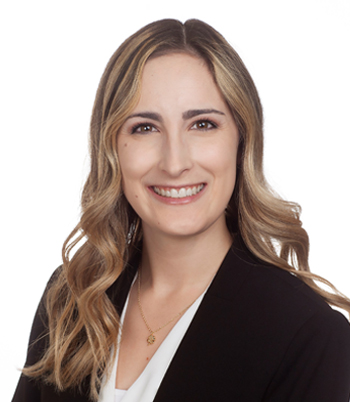
Alexandra Lizano | Associate Attorney in Environmental Law at Downey Brand
Alexandra Lizano (“Ally”) represents various public and private sector clients in environmental compliance and enforcement matters. She helps her clients navigate environmental statutes, including the Comprehensive Environmental Response, Compensation, and Liability Act (CERCLA), the Resource Conservation and Recovery Act (RCRA), and the Clean Air Act (CAA) Risk Management Program. Ally also helps clients throughout the supply chain comply with and litigate claims under California’s Proposition 65. In her Proposition 65 practice, Ally focuses on consumer products including apparel, household goods, and food products. Ally has an Environmental Policy Analysis and Planning degree.
For more information about Prop 65 and preparing your business for a changing regulatory environment, click here to contact Ally Lizano at Downey Brand.

